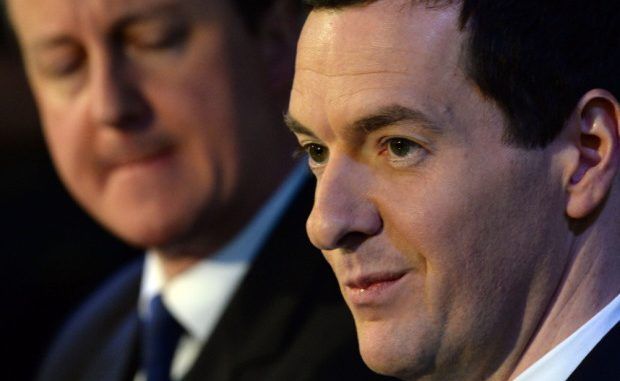
The Chancellor has ordered Whitehall departments to draw up plans to cut their budgets by up to 40 per cent, a move that could see further privatisation of public services and more welfare cuts.
George Osborne’s £20 billion worth of spending cuts planned over the next four years will be unveiled in a spending review which is due to be published on November 25.
The Independent reports:

BYPASS THE CENSORS
Sign up to get unfiltered news delivered straight to your inbox.
You can unsubscribe any time. By subscribing you agree to our Terms of Use
The Chancellor’s attempt to re-shape the state will include a squeeze on Britain’s spending on aid to the world’s poorest countries. Although the Government will not breach its pledge to spend 0.7 per cent of Gross National Income on aid, the Treasury will pare back projects abroad by departments such as the Foreign Office and Energy and Climate Change and, which spent £343m and £225m respectively on them last year.
The £20bn of cuts over the next four years will be revealed in a government-wide spending review to be published on November 25, Mr Osborne announced today. He said it would “finish the job” of clearing the nation’s deficit.
In its opening bid, the Treasury told departments to “model” cuts of 25 and 40 per cent on top of inflation by the 2019-20 financial year. The only budgets exempt will be the NHS, schools, overseas aid and defence but their departments will be expected to make efficiency savings.
Mr Osborne’s determination to recast the state was set out in a Treasury document pledging to achieve more with less. Surprisingly, it raised the prospect of further cuts to welfare on top of the £12bn approved in principle by MPs on Monday. “The Government will continue to consider further sensible welfare reforms that strengthen work incentives and make the welfare system fairer and more affordable,” it said.
Automatic annual pay rises for civil servants, designed to retain staff, will be scrapped. They can be worth between 2 and 5 per cent.
The Treasury report hinted that more user charges could be introduced for state-run services while regulatory rules which protect the public are relaxed and more services are delivered by private firms. “Modernising regulatory requirement for delivering services or the approach to payments for services can allow more providers to enter the market, increasing competition and innovation, resulting in increased efficiency and reduced costs,” it said.
Cabinet ministers who propose radical reforms which save money by the Treasury’s September deadline will be rewarded by Mr Osborne. He wants them to avoid “salami-slicing” by following the lead of Michael Gove, the Justice Secretary, who has vowed to tackle bureaucracy and inefficiency in the courts system.
The first ministers to strike a deal with the Chancellor could also win a place on the Cabinet’s “star chamber”, which will have the final say on where the cuts fall.
But Philip Hammond, the Foreign Secretary, played down the demands, saying: “Past experience would suggest that initial pitching by the Treasury should be regarded as aspirational and a ranging shot.”
In the Commons, Mr Osborne admitted the cuts would mean “difficult choices” but hinted that the overstretched social care system could receive more money.


